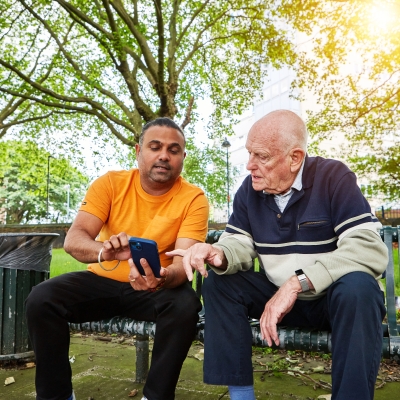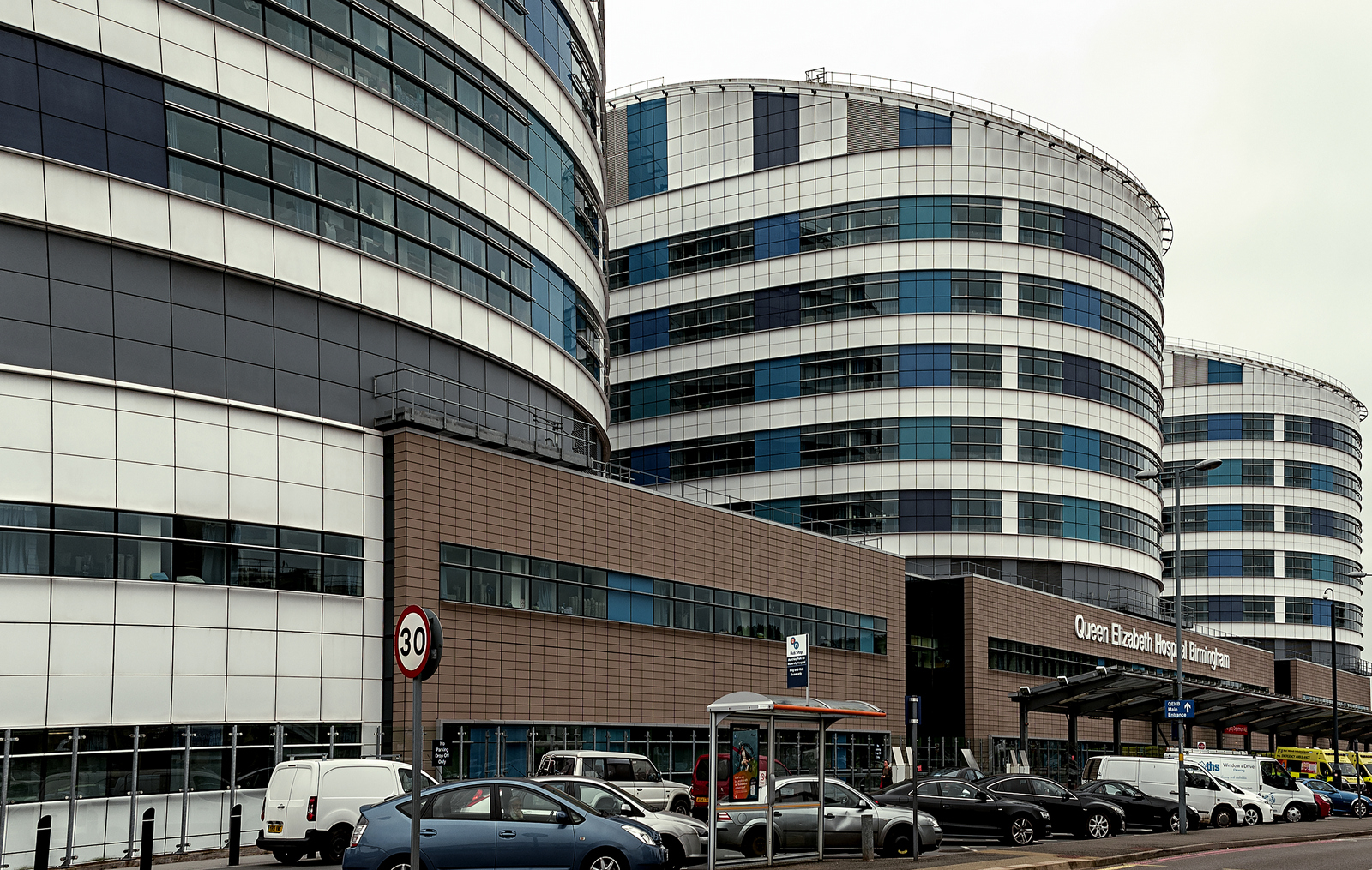If you're a patient in Birmingham and Solihull, we want to support you throughout your hospital journey.
Our goal is to ensure that you receive the care you need in a comfortable and timely manner, whether it’s your first visit to hospital or you're attending a follow-up appointment.
The information below will explain what to expect before, during, and after your hospital appointment, helping to make the experience as smooth as possible for you.
We understand that hospital visits can sometimes feel overwhelming, so we hope that information below will be helpful.

Choosing where you have your NHS treatment
You have the right to choose where you receive your NHS treatment. This means you can decide which hospital or service is best for you. Please visit the NHS website to learn more.
You may also want to visit the My Planned Care website for information about waiting times at your hospital, as well as providing you with advice and support while you wait.
Whether you're choosing where to have treatment or what kind of treatment to have, you'll need to make choices about healthcare. Visit our webpage for advice for how to make the right healthcare choices for you.
Waiting for your appointment
The My Planned Care website gives you direct access to the latest hospital waiting times, as well as useful advice to help you to stay as healthy as possible whilst you prepare and wait for your appointment. The site is updated weekly and can be accessed by anyone.
The My Planned Care includes advice on:
- Managing symptoms and pain
- Looking after your mental health
- Accessing financial support and other support services
If your health condition got significantly worse since your original referral, and you believe that you need to be seen sooner, there may be an option to bring forward your appointment – this often called an expedited appointment or expedited referral.
To request an expedited referral, you will need to speak to the person who referred you (your GP or specialist). They will need to submit a request on your behalf with supporting evidence.
Examples of situations where an expedited referral may be appropriate include:
- Significant worsening of symptoms or a new, urgent clinical concern.
- New evidence from healthcare professionals that suggests a more urgent need for treatment.
- A change in your condition that could potentially affect your long-term health.
Hospitals prioritise patients who have the most urgent medical needs, and patients who have been waiting the longest. Patients who are on an urgent treatment pathway, for example due to a possible cancer diagnosis, will continue to be seen as quickly as possible.
Please be aware that simply waiting a longer time than you would wish does not make your request urgent or meet the criteria for your appointment request to be expedited.
Managing your appointment
You can use your smart phone or computer to manage your appointments via the NHS App.
You can now manage your hospital appointments easily through the NHS App on your smartphone or computer. While waiting for your appointment, operation, or treatment, the NHS App allows you to view and manage your appointments, as well as access helpful information and support.
Most GP surgeries in England (about 95%) are fully connected to the NHS App, meaning you can use all its features. When you open the app for the first time, it will let you know if your GP surgery is connected. If it's not, you can register your email address, and you'll be notified when they go live.
Even if your GP surgery isn't connected yet, you can still download the app and use it to check symptoms and find out what to do if you need urgent help.
For more information on how to download and use the NHS App, visit the NHS App website and find a guide on getting started on the NHS App.
For patients at University Hospitals Birmingham NHS Foundation Trust (UHB), which runs Good Hope, Heartlands and Solihull hospitals, and Queen Elizabeth Hospital Birmingham, you will receive a text message or email once your referral has been received. This applies to referrals from your GP, dentist, optometrist, external consultant, private GP, or for tests directly ordered by your GP, such as an electrocardiogram (ECG).
You can visit UHB's website for more information on how your referral is acknowledged.
If you need to get in touch with your hospital directly, the links below will take you to the contact pages for the hospitals and services in Birmingham and Solihull. These links will help you find the right contact information quickly, so you can get the support you need:
- Birmingham Women’s and Children’s NHS Foundation Trust
- Birmingham Community Healthcare NHS Foundation Trust
- Birmingham and Solihull Mental Health NHS Foundation Trust
- Birmingham and Midland Eye Centre
- The Royal Orthopaedic Hospital NHS Foundation Trust
- Sandwell and West Birmingham Hospitals NHS Trust
- University Hospitals Birmingham NHS Foundation Trust
These links will guide you to the right organisation, whether you have a question about your appointment, need help with your care, or are looking for more information.
Frequently asked questions
We understand how important it is for you to be seen quickly, and we know waiting can be frustrating.
Hospitals are currently experiencing a high number of referrals, which means it may take longer than usual to schedule your appointment.
Please know that we are doing everything we can to manage this and ensure patients are seen as soon as possible.
We appreciate your patience and understanding during this time.
Yes, you can request to change hospitals after your referral has been made. To do this, you'll need to contact the referral team at your GP surgery. They will notify the original hospital of the cancellation, and a new referral will be made to the hospital of your choice.
Unfortunately, your GP surgery is not able to chase appointments.
The hospitals are working hard to keep patients informed about their appointments. If you're a patient at University Hospitals Birmingham NHS Foundation Trust (UHB), which runs Good Hope, Heartlands and Solihull hospitals, and Queen Elizabeth Hospital Birmingham, you will receive a text or email when your referral has been received. For more information, visit the UHB referral webpage.
You can visit the My Planned Care website to find the latest waiting times for hospitals across the country.
If you still need to find out more about your appointment, please use the contact details provided in the helpful contacts section.
We understand the waiting process can be difficult, and we appreciate your patience.
If your test, procedure, or appointment was arranged by your GP, your practice will be able to provide you with a copy of the relevant letters or results once they have been reviewed by the clinician who requested the test, procedure or appointment.
If you were seen in the hospital and the test or procedure was requested by the hospital specialist, please contact the specific hospital department where you were treated to request your results.
You can also check the NHS App to access your records, which may include results, letters, and other important information.
If you continue to have difficulty accessing your results from the hospital, we recommend reaching out to the Patient Advice and Liaison Service (PALS) at the hospital for further support. You can find more information about PALS on the NHS website.
Administrative staff are not trained to be able to discuss your test results with you. To get your results, you will need to speak with your GP or the person who requested the test, such as your specialist.
Once your GP has reviewed your test results or your specialist has shared them with your GP surgery, you may be able to view the results on the NHS App, making it easier for you to access your information.
Yes, if you need a referral letter for a private appointment (for example, for an insurance company), you will need to be seen by your GP first. Please book an appointment with your GP for a clinical assessment, and they will be able to provide a private referral letter, if appropriate.
What happens during and after your appointment will depend on the reason for your referral. Your appointment letter should provide guidance on what to expect before, during, and after your visit. If you haven't received this information or need further details, please contact your chosen healthcare provider for assistance.
Your appointment letter should include the contact details for rearranging or cancelling your appointment. If you've misplaced the letter or can't find this information, please contact the hospital or provider you have been referred to as soon as possible to reschedule.
If you have already received a letter or communication from your provider, it’s best to contact them first using the details on your appointment letter.
If you haven’t yet received any information and are unsure if it’s the right service for you, please speak to your GP.
Be aware that if you choose to change providers after waiting for some time, you may be placed at the bottom of their waiting list, which could result in further delays.


